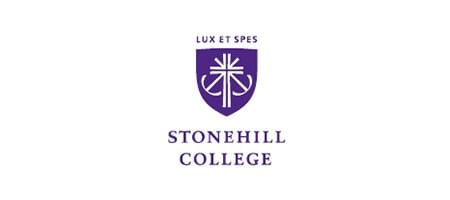
Key Takeaways:
- The first two schools listed in the ranking of the top 25 healthcare management bachelor’s programs are James Madison University and George Mason University.
- Healthcare management is a smart career choice due to the large size of the healthcare sector and the strong job market.
- Entry-level positions require an undergraduate degree; programs provide a flexible path to advance careers and increase salaries.
- Programs focus on training in health administration, ethics, and technology and require internships to gain real-world experience.
The best health care management programs offer professionals a flexible path to boost their career and salary with a health management degree.
Healthcare is a hot career field and one of the largest business sectors in the U.S., making a health care management degree a smart career move. In 2019, more than 16 million people work in some area of healthcare. According to the Center for Medicare and Medicaid Services (CMS), Americans spent more than $3.6 trillion in healthcare services in 2018. Healthcare managers/administrators are key employees in providing quality health care for their communities.
Entry-level positions for both healthcare administrators and managers will require you to have at least an undergraduate degree. Best Health Degrees has identified some of the best undergraduate programs. These schools are accredited and financial aid is available with submission of the Free Application for Federal Student Aid (FAFSA) for qualified students.
Our Method: Ranking the 25 Best Health Care Management Bachelor’s Programs
To rank the 25 Best Health Care Management Bachelor’s Programs, Best Degrees editors researched accredited, trusted programs of all kinds. From our initial pool, we ranked programs according to price, accreditation, reputation, and salary potential, using data from IPEDS and Niche, U.S. News and World Report, and other higher education rating publications.
Note: Covid-19 has presented challenges for colleges and universities. You’ll want to check with the schools in which you’re interested to see what changes to admissions and attendance requirements may be in place due to the pandemic.
1. James Madison University
This Virginia university offers a four-year Bachelor of Science in Health Services Administration designed to prepare you for an entry-level healthcare administrative position.
This health care management curriculum requires 31-credit hours in general education courses before starting studies in statistics, computer information systems, microeconomics, and healthcare systems. Major studies include health administration-focused studies in gerontology, management and organizational behavior, accounting, marketing, and more. Your final year will find you studying Health Economics, Quality Management, Managed Care, Funding in Health Care, and an Internship. Students must take two of the following courses: Long Term Care Organization and Administration, Hospital Organization and Administration, and Ambulatory Care Services.
You’ll make a general application for JMU admission and apply for the Health Services Administration major in your sophomore year. Application to JMU requires a $70 fee, official high school transcript (or for any schools attended), letter of recommendation, and personal statement. JMU no longer requires SAT/ACT scores for admission.
Fast Fact: Named #1 Most Innovative University in the South by U.S. News & World Report
Estimated Tuition Cost: $7,250-$24,150/per year
Find out more about the health care management program here! master of health administration
2. George Mason University 
You can take your pick of health administration studies through George Mason University’s BS in Assisted Living/Senior Housing Administration Concentration, BS in Health Informatics, or BS in Health Systems Management Concentration.
Students in this health care management complete 120-credit hours, including general education courses, with this degree. Some courses overlap in topics such as healthcare accounting, law, finance, ethics, etc. Depending on your concentration, you’ll take specific courses to meet your requirements. For instance, a BS in Health Systems Management, you’ll take courses in Electronic Health Data in Process Improvement, Information Technology Project Management, Privacy and Security in Health Informatics, and more. All concentrations require an internship.
Admission requires ACT/SAT scores, high school or other academic transcripts, submission of GMU’s Common Application, and a $70 application fee. Once admitted, you’ll declare a major and meet with an academic advisor in the College of Health Administration and Policy.
Fast Fact: Niche ranks GMU #113/676 Top Public Universities in America
Estimated Tuition Cost: $11,880-$41,220 per year
Find out more about the health care management program here! master of health administration
3. California State University Long Beach 
You may want to explore the BS in Health Care Administration from this California school. The program concentrates on health management foundations.
Among the 120-credit hours you’ll take in this degree (including general education courses) are studies in elementary statistics, human biology, human anatomy and physiology, medical terminology, and the health care system. Other studies involve Management and Information Systems, Quality Assurance in Health Care, Principles of Risk Management and Patient Safety, Global Issues in Health Services, and others. You’ll also be expected to complete an internship under the guidance of a preceptor. You need to maintain a minimum of a “C” average for the program.
Admission to CSU-LB is fairly straightforward and includes an application submission, including academic transcripts, and other documents as requested. Beginning in the Fall of 2021, SAT/ACT scores are not required.
Fast Fact: Ranks #3 in Top Public Schools by U.S. News and World Report
Estimated Tuition Cost: $8,613-$14,253/per year
Find out more about the health care management program here! master of health administration
4. Auburn University
Alabama’s Auburn University has a BS in Health Services Administration Program that requires 120-credit hours for completion.
Besides the general education classes, you’ll study accounting, microeconomics, Health Care Policy, Developing Care Organizations, Health Information Technology, psychology or sociology, and a Health Administration Seminar. You’ll also take courses in Human Resources, Health Care Insurance and Reimbursement, and an internship. A Capstone Seminar is required as well.
Decisions on admission take a holistic approach, examining not only grades but extracurricular activities, letters of recommendation, as well as a resume. Of course, you’ll need to submit academic transcripts from all schools you’ve attended.
Fast Fact: Named Best Value College by The Princeton Review
Estimated Tuition Cost: $5,898-$15,978/per year
More: Find out more about the health care management master of health administration
5. University of Alabama Birmingham
The Department of Health Services Administration at UAB offers a Bachelor of Science in Health Care Management (HCM). This University of Alabama health care management degree prepares you for entry-level healthcare administrative positions.
 You’ll complete an overall 120-credit hours in a core and major curriculum designed to teach leadership and communication skills. Among the classes you’ll take are Medical Terminology for Health Professionals, Economics for Healthcare Managers, Healthcare Reimbursement Methods, Health Care Systems, Healthcare Law and Ethics, Operations Management in Health Care Organizations, and a choice of elective courses. You’ll also be asked to complete an internship in a healthcare organization with an experienced preceptor. The program offers three concentration tracks as well as three healthcare management minors.
You’ll complete an overall 120-credit hours in a core and major curriculum designed to teach leadership and communication skills. Among the classes you’ll take are Medical Terminology for Health Professionals, Economics for Healthcare Managers, Healthcare Reimbursement Methods, Health Care Systems, Healthcare Law and Ethics, Operations Management in Health Care Organizations, and a choice of elective courses. You’ll also be asked to complete an internship in a healthcare organization with an experienced preceptor. The program offers three concentration tracks as well as three healthcare management minors.
You can apply for admission directly into the HCM program. First-time college students will need to submit ACT/SAT scores, school transcripts, a $200 non-refundable Freshman Enrollment Deposit (waivers are possible). Transfer students will submit transcripts and have a 2.0 GPA from the last school attended. Students transferring from two-year colleges can transfer up to half of the credit hours required for the HCM program.
Fast Fact: Founded in 1859, UAB is ranked #93/676 in Niche’s Top Public Universities in America
Estimated Tuition Cost: $12,630-$30,150/per year
More: Find out more about the health care management master of health administration
6. University of Baltimore
Here’s a BS in Health Management from UB’s College of Public Affairs that is for transfer students only.
Designed with working professionals in mind, this health care management degree is hybrid in nature and offers traditional in-class studies on Saturdays and online coursework. You’ll take 38 credit hours in general education studies and 42 Health Management coursework. Among the major classes you’ll take are Overview of Health-Care Delivery Systems, Health Policy and Politics, Health-Care Law and Risk Management, Quantitative Methods for Health Care Managers, Strategic Management in Health Care, other topics as well as an internship.
You’ll submit a $35 application fee along with a transfer application. You’ll need at least 30-credit hours (63-credit hours maximum) from another college to make the application and submit academic transcripts from previous colleges attended. UB offers a rolling admission process.
Fast Fact: U.S. News and World Report’s Best Grad Schools ranks this school #65 in Best Public Affairs Programs and #26 in Best Nonprofit Management Programs for 2021
Estimated Tuition Cost: $10,521-$29,061/per year
Find out more about the health care management program here! master of health administration
7. Oregon State University 
OSU has a four-year B.S. in Health Management and Policy degree which focuses on legislative and organizational development in healthcare. This degree is offered online or in-class.
With a public health concentration, you’ll study core courses in Financial Management of Health Care Organizations, Health Care Law and Regulations, Reimbursement Mechanisms, Introduction to Health Care Management, Principles of Marketing, Biomedical Ethics, and more. You’ll also need to complete an internship in a community, health agency, or worksite location under a qualified preceptor. The program allows you to concentrate on administration in long-term care facilities, assisted living, and other gerontology agencies and earn a gerontology certificate if you want.
As a first-time university student, you’ll need to submit your high school transcripts, test scores are optional, a 3.0 GPA preferred, an application, etc. Transfer students must have completed at least 24 credit hours with a 2.24 GPA or better, completion of English composition, math, or algebra.
Fast Fact: Rated a Best Online Program by U.S. News and World Report
Estimated Tuition Cost: $9,540/per year
Find out more about the health care management program here!
8. Appalachian State University
Located in Boone, North Carolina, Appalachian State University has a B. S in Health Care Management degree which combines business with health care administration courses.
Requiring 120-credit hours, you’ll study Introduction to Health Care Organizations, Health Services Management, Health Information Systems, Ethics in Health Care, Health Law and Policy, Quality Management and Process Improvement in Health Care, Health Care Economics, and more. Courses in accounting, statistics, business communication and writing, as well as marketing, are also part of the B.S. curriculum. Additionally, you’ll participate in an internship, which is a full-time worksite experience in an approved health facility. The internship is typically conducted in the summer.
Fast Fact: Ranked #3 in U.S. News and World Report’s Top Public Schools
Estimated Tuition Cost: $15,124-$29,931/per year
Find out more about the health care management program here!
9. California State University Chico
Here’s a B.S. in Health Services Administration that will help prepare you for entry-level positions in a wide range of health care services.
You’ll enroll in a curriculum that offers Healthcare Delivery System, Health Equity, Laws, Ethics & Regulations, Financial Management of Healthcare Organizations, Statistics, Human Resource Management, Health Care Policy as well as Management Principles in Health Services, and others. An internship is also required. This coursework is designed to develop your business skills as well as provide a solid foundation in the operation of healthcare organizations.
Fast Fact: Niche ranks this school #341/1,572 Best Value Colleges in America
Estimated Tuition Cost: $3,934/per semester
Find out more about the health care management program here!
10. Texas State University
Through Texas State’s School of Health Administration, you can earn a Bachelor of Health Administration (BHA) in two years which concentrates on leadership, business knowledge and skills, as well as a solid understanding of the health care environment.
You’ll have a wealth of courses from which to choose, which includes studies in strategic management, cost accounting, finance in healthcare, employment law, patient care management, healthcare information systems, ethics, and healthcare organization. Practicum Internships are required as is a Healthcare Administrative Residency for those with limited or no healthcare management experience. For internships and residencies, you’ll need to complete and pass a background check, drug test, and immunizations.
Undergraduate admissions to TSU’s BHA program requires completion of general education coursework with a 2.75 GPA, and passing a writing exam. You’ll also need to submit a letter of purpose and have an interview. General university admission requires academic transcripts as well as orientation.
Fast Fact: Ranked #183 in Forbes Public Colleges 2019
Estimated Tuition Cost: $11,540-$23,820/per year
Find out more about the health care management program here!
11. Franciscan Missionaries of Our Lady University 
If you have an associate’s degree, you’ll want to review the Bachelor of Science in Health Sciences at this Baton Rouge, Louisiana school.
You’ll need to complete 60-credit hours for this program in a core and program-specific curriculum. Math, theology, and professional writing are included in the core coursework. In the Health Service Administration track, you’ll study management principles, theological bioethics, trends in healthcare systems, healthcare statistics, and a capstone project. This project is completed in your last year and will focus on Strategic Management and Business Policy. You’ll also need to take 3 credit hours in an elective.
As a two-year program, you’ll submit academic transcripts from all colleges attended, a 2.0 GPA or better and must have earned less than 30 semester credit hours or 46 quarter hours.
Fast Fact: Niche rates this university #35/164 Best Catholic Colleges in America
Estimated Tuition Cost: $34,323/program total
Find out more about the health care management program here!
12. California State University Northridge
This is a B.S. in Health Administration with a broad-based curriculum.
The health care management degree requires 120-credit hours for completion and is a good preparatory degree for work in healthcare administration, or for those currently working in healthcare. You’ll take general education courses as part of the overall curriculum. In your major, you can expect to study core courses in biostatistics, epidemiology, and health systems organization and delivery. The curriculum also involves health information systems, health administration, healthcare-specific law, and others. You can take classes in gerontology, hospital administration, global health, etc. A summer internship is also part of the program. Due to COVID-19, on-site internships aren’t available and you’ll complete an alternate internship program.
Admission is straightforward, requiring transcripts, application, test scores, and other documents. The school recommends you apply early in order to meet all program deadlines and dates.
Fast Fact: Ranked #18 in U.S. News and World Report’s Top Public Schools
Estimated Tuition Cost: $2,871/per semester
Find out more about the health care management program here!
13. University of New Hampshire
The College of Health and Human Services at UNH, offers a B.S. in Health Management and Policy degree.
Through a multifaceted curriculum, this health care management degree is designed to train you for a variety of healthcare administrative positions. Among the subjects you’ll study are public health, law and ethics, epidemiology, ethics, law, finance, economics, planning, as well as marketing. Additionally, analytics, management, and planning are also included. A healthcare practicum is part of the program’s design, as well. The website provides detailed curriculum information to help you decide if this is the program for you.
First-year students will need to submit high school transcripts or GED, letters of recommendation, SAT/ACT scores are optional, and a completed application for admission consideration. Transfer students must have at least a 2.0 GPA and also provide academic transcripts from all colleges they’ve attended.
Fast Fact: Founded in 1866, UNH is ranked #88 Best Value Schools by U.S. News and World Report
Estimated Tuition Cost: $15,520-$32,860/per year
Find out more about the health care management program here!
14. University of Minnesota Duluth
This is a Bachelor of Business Administration with a Health Care Management concentration that will give you a strong background in economics and financing.
You’ll take a total of 120-credit hours of general education courses with this health care management degree and in a variety of subject matters. The degree is offered through the Labovitz School of Business and Economics. Among the topics included are pre-requisite courses in economics, accounting, macroeconomics, communication, and others. You can expect to take advanced writing and professional development classes. Courses in your concentration include Health Care Organization and Management, Health Care Quality Management, Legal Aspects of and Ethics in Health Care, and more. You should expect to complete an internship in a healthcare or government agency, healthcare organizations or systems, or community organizations dealing with healthcare issues.
You’ll make a general application for admission to the university, which includes a $40 application fee, as well as college or university transcripts, high school or GED documents, and optional ACT/SAT scores. At the beginning of your sophomore year, you’ll make an application to the program and demonstrate a 2.60 GPA.
Fast Fact: U.S. News and World Report ranks this university #8 in Top Public Schools
Estimated Tuition Cost: $38,760/per year
Find out more about the health care management program here!
15. University of North Florida
The Brooks College of Health at UNF offers you a Bachelor of Health Administration (BHA) requiring a 120-credit hour curriculum.
You’ll need to complete prerequisites in economics, financial accounting, and statistics. Major studies will be in classes of Health Law and Ethics, Health Economics/Quantitative Analysis, Managerial Epidemiology, U.S. Health Care System, Health Information Systems, Health Care Marketing, as well as others. An internship is required during your last semester in either Health Administration or Long Term Care Administration (which requires adding that concentration).
Standard first-year admission requirements apply with submission of an online application and a $30 nonrefundable fee, official high school transcripts, as well as ACT/SAT scores. Many of the same requirements are necessary for transfer students.
Fast Fact: Forbes recognizes the University of North Florida as one of its America’s Best Value Colleges in 2019
Estimated Tuition Cost: $21,000-$78,600/program total
Find out more about the health care management program here!
16. Towson University

This long-standing Maryland university, located outside of Washington D.C., offers a Health Care Management undergraduate degree.
You’ll take 121-122 credit hours of study for this health care management degree and participate in an internship for completion. This curriculum combines healthcare management studies along with undergraduate business courses. There are a series of required courses such as Information and Technology for Business, Health Administration, Legal Environment of Business, Health Care in the U.S., Legal and Ethical Issues in Health Administration, and more. The program also offers a Long-Term Health Care Track, which concentrates on ethical issues, administration of, and the study of physical heath in aging.
You’ll make an admission application online, pay a nonrefundable fee, and submit ACT/SAT scores (although not required). Immunization records are required for admission. Additional documents may be required and you’re encouraged to talk with a Towson University admissions counselor.
Fast Fact: Forbes named Towson University one of its Best Value Colleges of 2019
Estimated Tuition Cost: $10,198-$24,334/per term
Find out more about the health care management program here!
17. University of Nevada, Las Vegas

You can earn a B.S. in Healthcare Administration from this desert university with an enrollment of over 25,000 students.
This health care management degree requires 120-credit hours with a general education in humanities, life, physical, and social sciences. Topics in your major include studies in information systems, macroeconomics and microeconomics principles, accounting, and finance. In your major, you’ll take courses in Health Care Law, Introduction to Public Health, U.S. Health System, Managed Care, etc. Additionally, you’ll participate in a practicum experience in a healthcare environment under the guidance of a preceptor and faculty member.
First-year applicants will need to submit online application, a $60 application fee, academic transcripts, ACT/SAT scores, or a Nevada Advanced High School diploma. Transfer students will need a 2.5 GPA in transfer credits.
Fast Fact: Forbes ranked UNLV in the top 200 of its Top Public Colleges in 2019
Estimated Tuition Cost: $8,604-$24,258/per year
Find out more about the health care management program here!
18. The University of Scranton

Located near the Pocono Mountains of Pennsylvania, the University of Scranton, a Jesuit school, provides a health care management degree in Health Administration.
The program blends business administration and health courses, and includes an internship. The degree requires 127-credit hours. Coursework for this degree includes studies in Research in Health Administration, Health Administration Law, Ethics, Financial Accounting, Introduction to Marketing, Principles of Management and Entrepreneurship, Cultural Diversity and Health Administration, as well as Business Information Management. You’ll also take general education courses in humanities, social behavior, as well as natural sciences. The 120-hour internship will be experienced in a wide range of healthcare services in the Scranton area.
Among the requirements listed for admission for first-year students are an application, academic transcript, letters of recommendation, optional ACT/SAT scores, and letter of extracurricular activities. Transfer student admission must submit an application, personal statement, letters of recommendation, and academic transcripts. If you have fewer than 30 credit transfer hours, you’ll also need to submit ACT/SAT scores and official high school transcripts.
Fast Fact: Ranked #6 in Regional Universities by U.S. News and World Report
Estimated Tuition Cost: $45,790/per year
19. East Carolina University

Greenville, North Carolina’s ECU is the fourth-largest university in the state. You can earn a B.S. in Health Services Management which requires 124-credit hours for completion.
ECU offers two concentrations in this field in Allied Health Management (for currently employed healthcare leaders) and the more traditional Health Services Management. You’ll enroll in general education classes in social sciences, humanities, math, etc. Health Services Management courses include Human Diseases, Medical Terminology, Professional Ethical Codes & Law in Health Care, Leadership in Health Care, Health Information Management, Economics for Health Care Majors, Marketing for Health Care Organizations, as well as an Allied Health Management Experience.
First-year applicants should be prepared to submit an application along with a $75 fee, official high school transcripts, and transcripts from all schools attended. ACT/SAT scores are not required. Transfer admissions requirements include academic transcripts from colleges and universities attended. Additionally, transfer students are required to provide high school transcripts and test scores.
Fast Fact: Ranked #109 Top Public Schools by U.S. News and World Report
Estimated Tuition Cost: $69,068-$321,284/total program
Find out more about the health care management program here!
20. Stonehill College

Stonehill College, in Easton, Massachusetts, offers its B.A. in Healthcare Administration through its Meehan School of Business’s Healthcare Administration Department.
With this degree, you’ll learn, and combine, business, healthcare, and liberal arts studies. You’ll choose elective courses for your major from topics in population health management, group practice management, private and public insurance, information systems, gerontology, finance, Human Resources, marketing, and public relations. An internship experience is required and includes an impressive catalog of organizations from which to complete your practicum. Among the opportunities available are Boston Medical Center, American Cancer Society, Veterans Health Administration, Owens & Minor, and several others. Stonehill College offers International Internships in Dublin, Madrid, London, Paris, and Sydney.
Stonehill Colleges uses the Common Application for admission and you’ll be asked to provide high school transcripts, teacher evaluations, as well as a 250 word Stonehill Application Essay. You won’t be asked to pay an application fee and, currently, the ACT/SAT scores are not required due to Covid-19. Transfer students are asked to submit several of the same documents as first-year students along with official academic transcripts from all colleges or universities attended. Transfers are encouraged to participate in a Virtual Transfer Open House.
Fast Fact: Stonehill College is considered #40/164 Best Catholic Colleges in America by Niche
Estimated Tuition Cost: $44,420/per year
Find out more about the health care management program here!
21. Howard University

This preeminent member of Historically Black Colleges and Universities, Howard University offers a B.S. in Health Management four-year degree.
Requiring 120-credit hours, this program is offered through Howard’s College of Nursing and Allied Health Sciences. The curriculum includes general education coursework ranging from the humanities, math, general and social sciences to African American studies. Your major studies will be in Health Informatics, Health Finance, Health Economics, Ethics for Healthcare Professionals, Health Policy, Health Management, along with Human Resource Management, and more. You’ll also have a capstone project seminar and can choose an internship elective.
Admission will require first-time students to submit an application with a non-refundable $45 fee (fee waivers are available for those who qualify), supply an official high school transcript or GED certificate with a minimum of 2.50 GPA, official school transcripts, and a letter of recommendation from your school counselor and one from a teacher. Due to Covid-19, for the 2020-21 academic year, ACT/SAT scores are not required.
Fast Fact: Founded as a private institution in 1867, Howard is the only HBCU named in the top 100 on U.S. News & World Report Best Colleges ranking
Estimated Tuition Cost: $26,464/per year
More: Find out more about the master of health administration program!
22. University of Wisconsin Milwaukee

If you’re looking for a B.S. in Health Care Administration that will also give you a solid business foundation, you’ll want to look at this degree through the College of Health Sciences.
In a four-year program, you’ll take general education prerequisites before beginning your major courses. Among the courses you’ll study are Anatomy and Physiology, Language of Medicine, Healthcare Delivery in the United States, Statistics in the Health Professions: Theory and Practice, Healthcare Quality Management, Health Information Technology and Management, Law and Ethics for Healthcare Professionals, and more. An internship, under a designated faculty member, is required for this degree and can be completed in a variety of healthcare organizations.
You have to first apply for UWM admission and designate “Health Care Administration” as your proposed degree. Admission requires an application and $25 fee, official high school transcripts for first-year students, an application essay, and optional ACT/SAT scores. Transfer students are given three options for admission, depending on your previous academic enrollment.
Fast Fact: Forbes ranks UWM #216 in Public Colleges
Estimated Tuition Cost: $4,627.06-$10,559.50/per semester
More: Find out more about the master of health administration program!
23. Loyola University Chicago
Loyola’s Parkinson School of Health Sciences and Public Health awards a B.S. in Healthcare Administration degree.

The 121-credit hour curriculum includes core studies in general education areas of Scientific Knowledge, Artistic Knowledge, Historical Knowledge, Theological Knowledge, Literary Knowledge, Philosophical Knowledge, and Ethics. In your major, you’ll study Health Care Policy, Health Information Systems Management, Health Care Data Analytics, Health Care in America, Foundations of Health Equity, Health Care Strategy & Marketing, etc. An internship is expected during your senior year in a healthcare organization in the Greater Chicago area.
Admission to Loyola Chicago requires first-time students to complete a free online application or Common App, official high school transcript, letter of recommendation from a teacher or counselor, and are encouraged to provide a resume, personal essay, and/or description of extracurricular activities. Loyola has a rolling admission process for transfer students.
Fast Fact: The Princeton Review considers Loyola University Chicago one of the Best Midwestern Colleges for 2021
Estimated Tuition Cost: $22,750/per semester
More: Find out more about the master of health administration program!
24. Florida A&M University

Located in Tallahassee, Florida, the Division of Health Care Management (HCM) at Florida A&M offers a B.S. in Health Care Management four-year degree. Florida A&M University is another Historically Black Colleges and Universities
Offering a robust curriculum, this program is designed to prepare all students, but especially racial and ethnic minority students, for entry-level administrative positions in healthcare. Among the courses you’ll take are general education and healthcare-specific classes. The major offers studies in Organization Administration of Health Care Facilities, Health Care Economics, Health Law, Health Policy and Politics, Approaches to Healthcare Strategic Planning, Medical Terminology, etc. An internship practicum and a capstone project. (The internship requires clearance of a criminal background check.)
Requirements for admission for first-year students include official transcripts, SAT/ACT scores, a completed admission application with a $35 fee, and two letters of recommendation. The school may ask for additional documents. Transfer students are required to submit many of the same materials.
Fast Fact: Ranked #7 in U.S. News and World Report’s Historically Black Colleges and Universities
Estimated Tuition Cost: $2,822- $8,795/per semester
Find out more about the health care management program here!
25. Eastern Washington University

If you’re interested in studying in the Pacific Northwest, you’ll want to explore the B.A. in Health Services Administration at Eastern Washington University in Spokane.
The degree requires 100-credit hours and is designed to give you an overview of healthcare administration practices. You’ll study strategic planning, healthcare process improvement, budget and policy in healthcare, financial accounting, business statistics, Human Resources, marketing, microeconomics, as well as business communication. The curriculum also calls for a capstone project and internship. The capstone project concentrates on U.S. and global healthcare issues. You’ll spend 20 hours a week in a healthcare organization for your internship.
The admission application is simple, needing an application with a $60 fee and school transcripts. EWU is test score optional. Instead of standardized tests, you can opt to submit an alternative document, such as a letter from a current teacher or counselor, demonstration of advanced high school courses like AP, Cambridge, IB, or CLEP. You’re also required to submit the Free Application for Federal Student Aid (FAFSA).
Fast Fact: Eastern Washington University, founded in 1882, ranks #24 in U.S. News and World Report’s Top Public Schools
Estimated Tuition Cost: $6,713-$24,685 /per semester
More: Find out more about the master of health administration program!
Why Should I Get a Bachelor’s in Health Administration?
Health Administration is one of the fastest-growing non-clinical health careers in today’s healthcare field. The Bureau of Labor Statistics (BLS) estimates the job growth for Health Administration, bachelor prepared applicants, to be an extremely rapid 32% between 2019-2029. It’s also one of the few fields where entry-level position salaries, on average, range from $86,820-$111,520 annually.
Bachelor of Science or Bachelor of Arts degrees in Healthcare Administration or Management offer coursework in key subject areas. Undergraduate studies in healthcare economics and finance, ethics, regulatory compliance, marketing, communications, strategy, informatics technology, human resources, hospital and health system organization, etc. Classes will familiarize you with legal issues, business studies, accounting, budgeting, and more.
Most undergraduate programs in healthcare administration will frequently require an internship experience, capstone project, or both. Internships will place you with a preceptor/mentor in a healthcare facility or agency and provide you with real-world experience in an administrative setting. Capstone projects will integrate what you’ve learned with actual healthcare issues. You’ll identify an issue, conduct research in the topic, and culminate with a presentation. Some programs will have you present your findings in front of healthcare professionals or even a professional conference.
In summary, a B.S. or B.A. in Healthcare Administration will prepare you to enter this field, ready to fill an administrative role in a hospital, health system, government agency, physician offices, long-term care facilities, or outpatient care centers.
How Do I Choose a Health Care Management Degree Program?
You should look at several things when choosing a Healthcare Administration program.
Curriculum
You’ll want to find a well-rounded curriculum that offers general education courses (humanities, social and behavioral sciences, physical sciences, arts, etc.) as well as major courses that cover healthcare-specific studies. Those studies should include classes in business operations, finances (budgeting, economics, accounting), health information technology, communications, organizational issues, marketing, healthcare law and ethics, regulatory compliance, etc. A program that offers an internship is helpful in providing you with actual healthcare administrative experience.
Cost
Tuition costs and fees are always a factor in choosing the right college or university. To help with costs, you should apply for federal student aid by completing the Free Application for Federal Student Aid (FAFSA). Schools will typically ask you to file for financial aid and the information is used not only for federal assistance, but state grants, low-interest loans, and need-based scholarships.
Length of Program
Undergraduate programs are usually four years in duration. However, if you have previous college coursework, you’ll want to determine how many credit hours of your courses will transfer and apply toward your degree. In addition, programs will often award credit for work experience, professional training, military training, etc. You’ll want to check with an admissions representative to determine if you can earn credit for what you already know.
If you have an Associate Degree from a community college, you’ll also want to verify that the courses you have taken will meet the general education coursework that four-year degree programs require.
Accreditation and Certification
Accreditation will assure you that the program is formally recognized as meeting specific educational standards. The university or college you choose should hold regional accreditation from an agency such as the Higher Learning Commission (HLC), Middle States Commission on Higher Education (MSCHE), Southern Association of Colleges and Schools, Commission on Colleges (SACSCC), and others. These are general accreditation provisions.
Individual academic programs can also receive accreditation such as the Commission on Accreditation of Healthcare Management Education (CAHME) or the Accreditation Council for Business Schools and Programs (ACBSP).
The bottom line is, you’ll want to attend a school that holds accreditation.
What is the Difference Between Health Care Management Degree and Healthcare Administration?
There are subtle differences between Healthcare Administration and Healthcare Management, and frequently, the terms are used interchangeably. It’s really one big tent. Both the Bureau of Labor Statistics (BLS) and the Commission on Accreditation of Healthcare Management Education (CAHME) make no distinction between the two titles.
Healthcare Management
These professionals typically handle the day-to-day operations of a healthcare facility. Among their duties are developing institutional policies, budget and finance management, procedures documentation, as well as effectively managing facilities and resources.
Healthcare Administration
This role is most often involved in overseeing the healthcare staff. Healthcare Administrators will most frequently be responsible for setting schedules, overseeing training and supervision, mentoring and guiding employees.
Education
Undergraduate programs for the two positions are often offered through business, health sciences, nursing, health information, and similar departments. The curriculum will include similar studies with some core business classes, legal and ethical studies, accounting and finance,, Human Resources, marketing and communications, information technology, as well as organizational behavior and development.
Related:
- 10 Fastest Online Health Care Management Bachelor’s Programs
- 15 Best Online Health Care Management Bachelor’s Programs
- Best Online Counseling Master’s Programs
- 15 Best Online Psychology Master’s Programs
- Best Public Health Bachelor’s Degrees
- 10 Fastest Online Psychology Master’s Programs
- 25 Best Counseling Bachelor’s Programs
- 15 Best Online Counseling Masters Programs
- 15 Best Occupational Safety Bachelor’s Degrees
- Best Medical Billing and Coding Degrees
- 25 Best Counseling Master’s Programs
- 10 Fastest Online Counseling Master’s Programs
- What Can You Do with a Human Service Degree?
- Best Types of Counseling Degrees